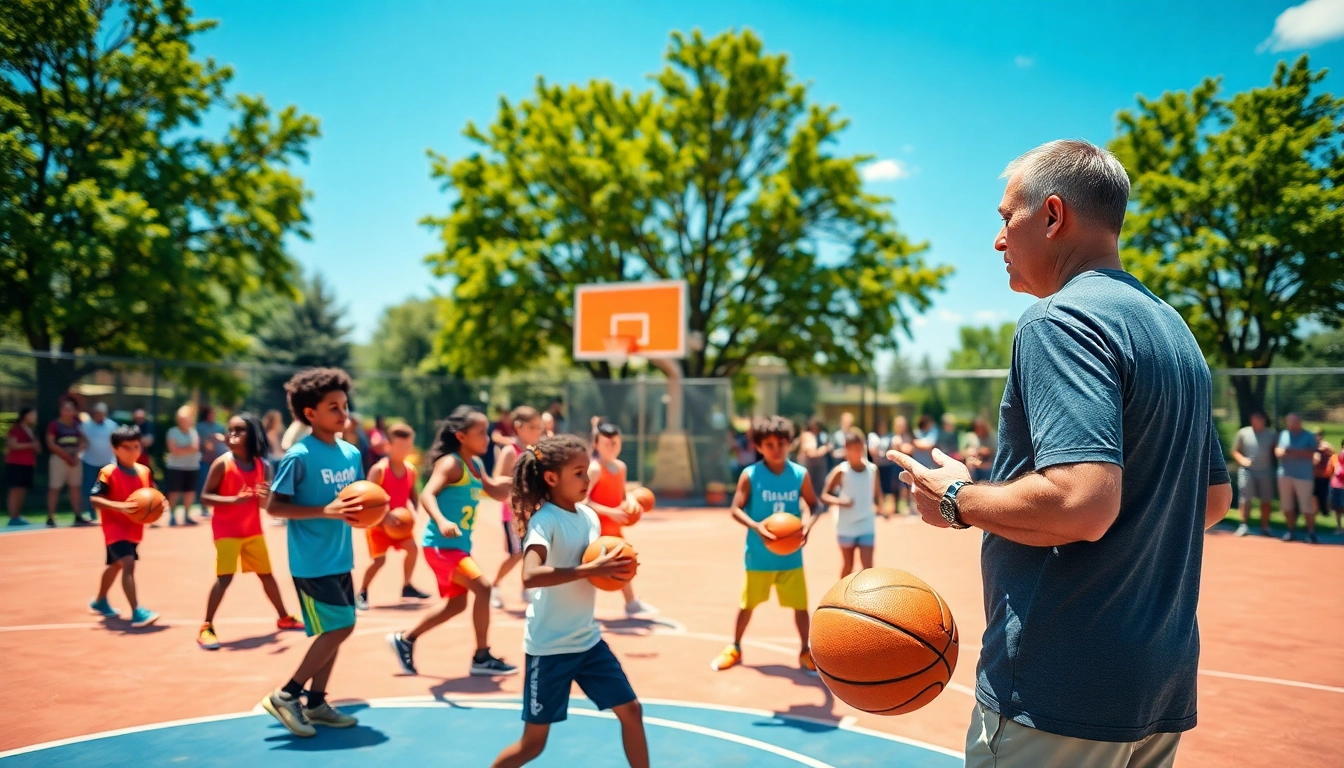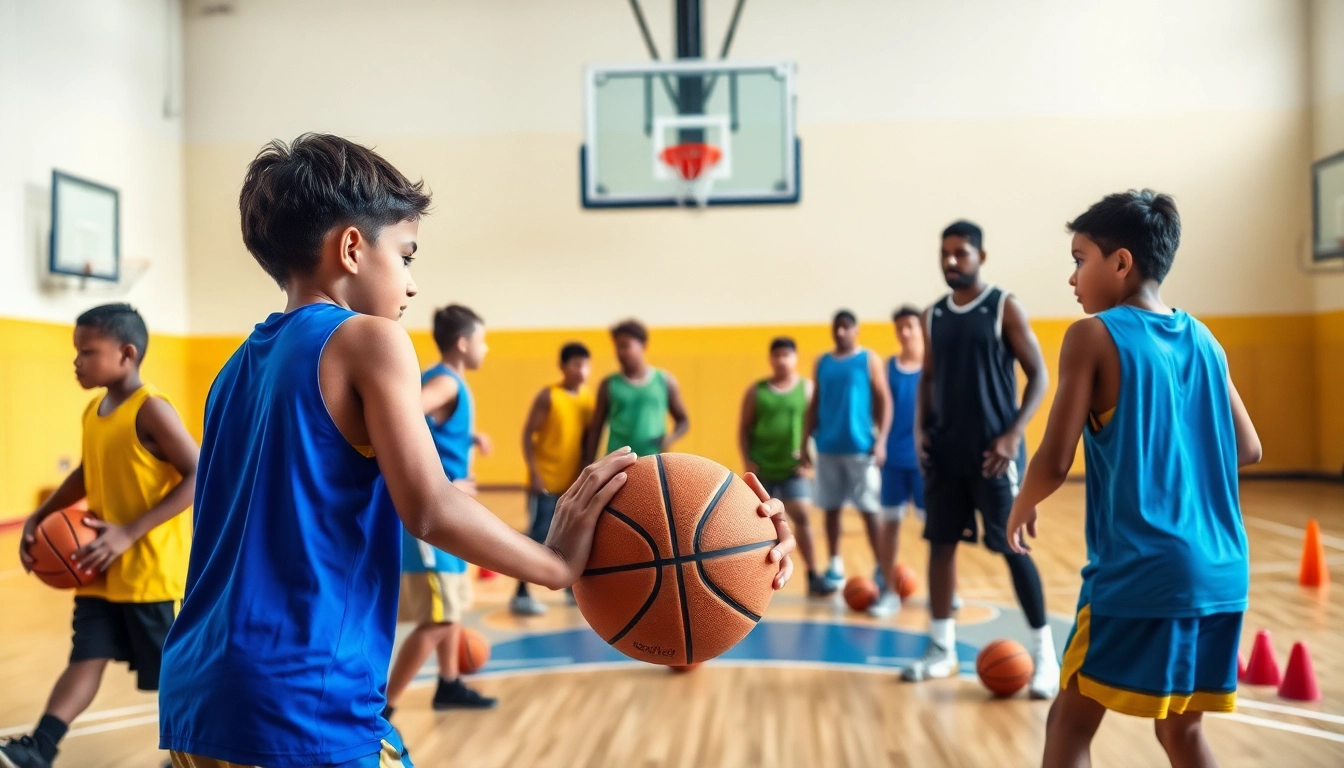Understanding Basketball Training Programs Near Me
Basketball is more than just a game; it’s a blend of skill, strategy, and teamwork that can elevate players to new heights. If you’re looking to improve your game, you might be wondering about basketball training programs near me. These training programs can help develop essential skills, improve technique, and boost overall performance, but understanding what these programs entail is crucial for maximizing their benefits.
What Are Basketball Training Programs?
Basketball training programs are specially organized activities designed to enhance a player’s abilities through a structured approach. These programs can vary widely, ranging from individual skills training to comprehensive team practices. They typically cover various aspects of the game, including shooting, dribbling, passing, defense, and mental preparation. Training programs may also include physical conditioning, injury prevention strategies, and nutrition guidance.
Benefits of Local Training Programs
Local basketball training programs offer numerous advantages for players at all levels:
- Customized Training: Programs tailored to meet the specific needs of participants allow for more effective skill development.
- Accessibility: Local training ensures that participants don’t need to travel far, saving time and costs associated with transportation.
- Community Engagement: Training programs foster connections among players, coaches, and families in the local area, creating a supportive basketball community.
- Expert Coaching: Many local programs are led by experienced coaches who can provide personalized feedback and instruction.
- Continuous Improvement: Regular practice opportunities enable players to see steady progress and develop their skills over time.
How to Choose the Right Program for You
Selecting the ideal basketball training program involves several factors. Consider the following when making your decision:
- Skill Level: Determine your current skill level—beginners may require different approaches compared to advanced players.
- Goals: Identify your specific goals, such as improving shooting, enhancing ball-handling, or preparing for competitive play.
- Program Reputation: Research local programs, asking for recommendations or reading reviews to find reputable coaches and successful track records.
- Format: Decide whether you prefer individual training, small group sessions, or larger camps, based on your learning style.
- Location and Schedule: Ensure the training schedules and locations fit your availability.
Types of Basketball Training Offered
Individual vs. Group Training Sessions
Basketball training can take various forms, with individual and group training being the two primary formats.
Individual Training: This format allows for one-on-one instruction, enabling tailored coaching that focuses solely on the player’s strengths and weaknesses. Individual sessions can be beneficial for rapid skill development, as the coach can concentrate on specific areas for improvement.
Group Training: Group sessions involve multiple participants and foster a competitive environment. They can be an excellent option for players looking to work on teamwork, decision-making under pressure, and social skills. Moreover, the cost-per-person may be lower in group training, making it more accessible.
Skill Development Clinics
Skill development clinics focus on honing particular basketball skills over a concentrated timeframe. These clinics may cover various topics, including:
- Shooting Clinics: Concentrating on shooting technique, footwork, and follow-through.
- Ball-Handling Clinics: Enhancing dribbling skills, control, and creativity with the ball.
- Defensive Clinics: Teaching techniques for effective defensive positioning, footwork, and stealing the ball.
Clinics are often led by experienced coaches and provide a structured approach to mastering crucial basketball skills.
Specialty Camps and Workshops
Specialty camps and workshops typically run during school holidays or summer months, focusing on specific aspects of the game. They generally span several days or weeks and can include:
- Positional Camps: Tailored training for specific positions like guard, forward, or center, focusing on the distinct skills required for each role.
- Advanced Skill Camps: Designed for competitive players aiming to refine their skills further and gain an edge over their opponents.
- Mixed-Ability Camps: These camps cater to various skill levels, allowing players of different backgrounds to train together and learn from one another.
Finding the Best Basketball Training Programs Near Me
Researching Local Academies and Coaches
To find the best basketball training programs nearby, start by researching local training academies and coaching options. Utilize online search engines, review sites, and social media to gather information. Networking with local coaches and players can also yield valuable insights.
Evaluating Coaching Credentials and Facilities
The quality of coaching and the training facilities play a significant role in the effectiveness of a basketball program. Evaluate coaches based on their experience, certifications, and success with previous teams. Additionally, assess the facilities in terms of:
- Training Equipment: Ensure that the academy is equipped with high-quality training gear.
- Gymnasium Quality: A well-maintained gym that provides ample space and good flooring is essential for injury prevention and optimal training.
- Location Safety: Consider the safety of the facility’s location and its accessibility for parents dropping off children.
Checking Reviews and Testimonials
Before selecting a basketball training program, take the time to read reviews and testimonials. Insights from past participants can provide a clearer picture of the training effectiveness and overall experience. Additionally, consider reaching out to alumni to ask about their personal experiences with the program.
What to Expect from Training Sessions
Typical Curriculum and Drills
Each training session often follows a structured curriculum designed to build progressively on skills. Typical components include:
- Warm-Up: Preparation to prevent injuries with stretching and light conditioning.
- Main Drills: Varied drills focused on ball-handling, shooting, defense, and passing.
- Scrimmage: Practice in game-like scenarios to develop teamwork and apply learned skills.
- Cool Down: Stretching and reflection to reinforce muscle recovery and reinforce lessons learned.
The Importance of Physical Conditioning
Successful basketball performance hinges not only on skill but also on physical conditioning. Training programs should include conditioning components aimed at enhancing:
- Endurance: Sustaining a high level of play throughout the game.
- Strength: Building the power necessary for shooting and defending against opponents.
- Speed and Agility: Improving quickness in both offensive and defensive situations.
Mental Training and Game Strategy
A well-rounded training program should also address psychological preparations and game strategy. Mental training elements may cover:
- Focus: Techniques to maintain concentration and minimize distractions during games.
- Confidence: Building self-belief through positive reinforcement and skill mastery.
- Game Strategy Understanding: Analyzing opponent tactics and preparing appropriate responses to different game scenarios.
Measuring Progress and Success
Setting Goals and Benchmarks
Effective training involves setting measurable goals and benchmarks. Athletes should work with their coaches to establish clear, attainable objectives, such as improving shooting accuracy from beyond the arc or increasing average points per game. Regular progress assessments will help identify areas needing additional focus.
Tracking Skill Improvement Over Time
Consistent monitoring of skill improvement is essential. Utilizing tools such as video analysis or statistical tracking can offer insight into development areas, allowing players to adjust their training as needed. Coaches may also provide feedback after each session to ensure continuous growth.
Feedback Mechanisms and Continued Development
Open lines of communication between players and coaches are crucial for long-term success. Constructive feedback can inspire players to embrace challenges and stay motivated. Furthermore, continuous evaluation and adjustments to training approaches will help tailor sessions to the athlete’s evolving needs.


